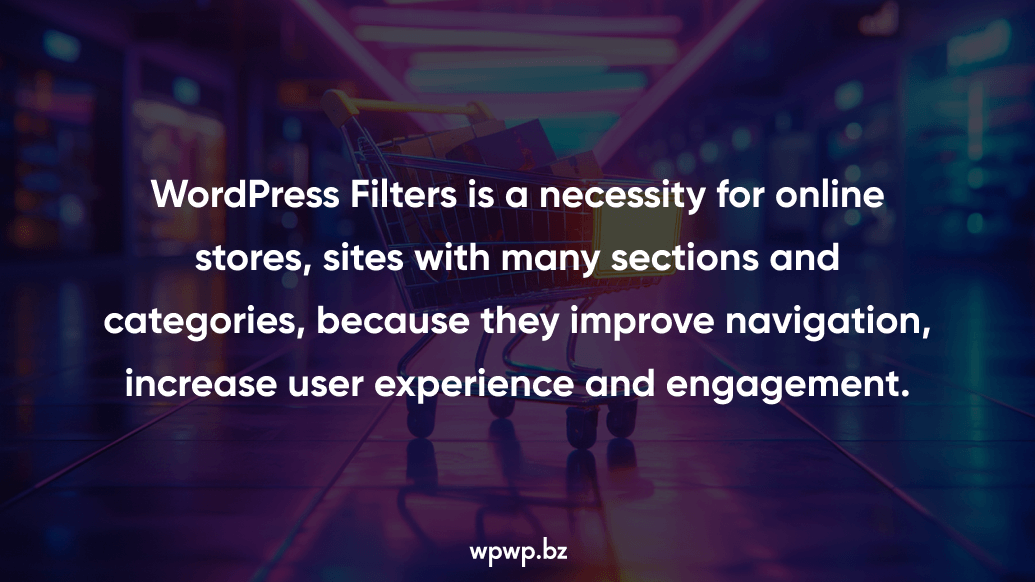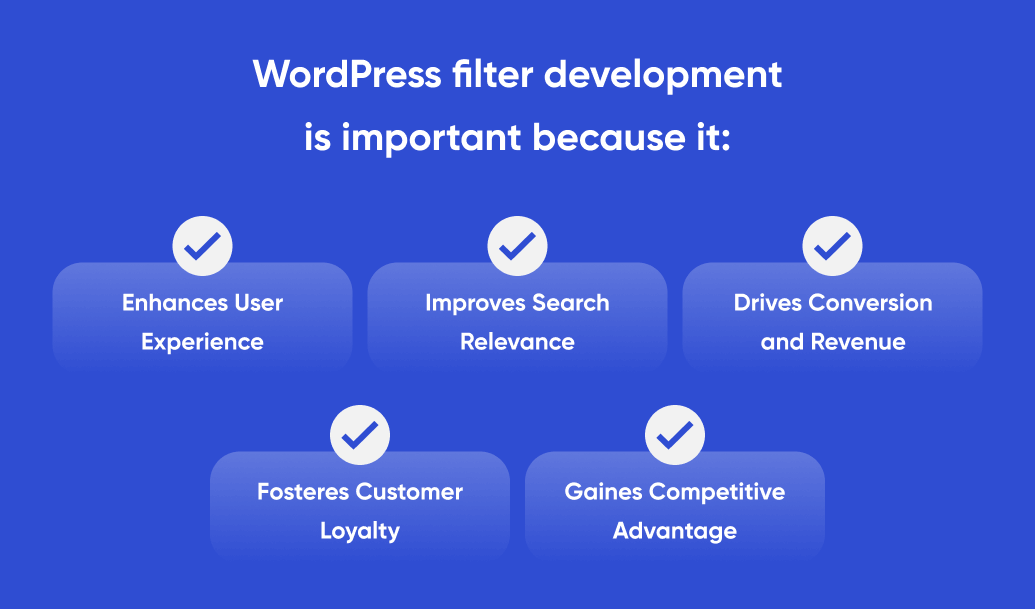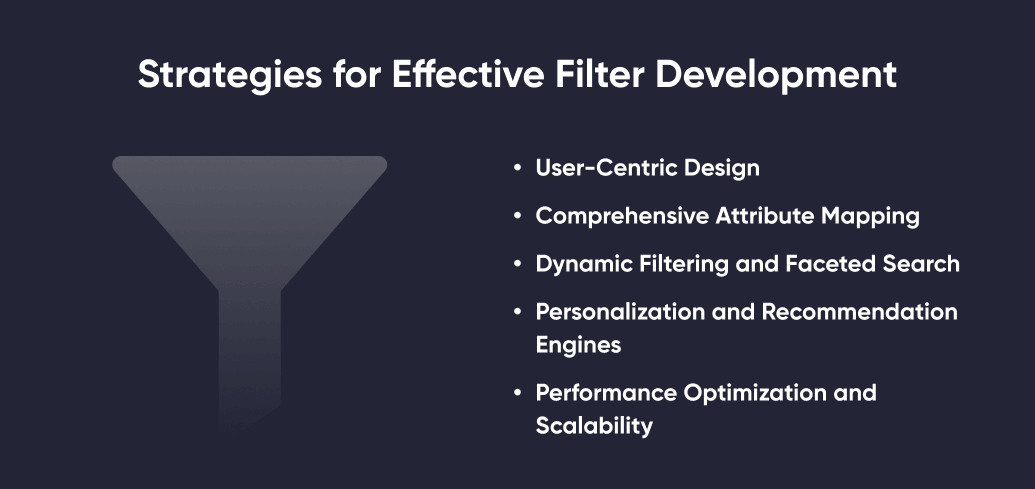
Introduction to WordPress Filtering
WordPress filtering refers to the process of categorizing and refining product listings based on specific criteria to facilitate user navigation and product discovery. Filters empower users to customize their search parameters, enabling them to swiftly locate products that align with their preferences, requirements, and constraints. From price ranges and product categories to size, color, brand, and more, filters offer a versatile toolkit for tailoring the shopping experience to individual needs.
Understanding the Role of Filter
Filters serve as navigational aids within the expansive virtual shelves of e-commerce stores, enabling users to efficiently move across product catalogs and hone in on items of interest. By segmenting and organizing product listings into manageable subsets, filters streamline the browsing process, mitigating information overload and decision fatigue. Moreover, filters facilitate comparative shopping by allowing users to juxtapose products based on relevant attributes, empowering them to make informed purchasing decisions.
Importance of WordPress Filter Development
It is difficult to imagine a WordPress site with many products or services without filters. It would be difficult for users to search for the options they need. Let’s take a closer look at the importance of WordPress filter development:
- Enhancing User Experience
The development of intuitive and user-friendly filtering systems is paramount for elevating the overall shopping experience. By simplifying the product discovery process and reducing search friction, well-designed filters foster a sense of convenience, empowerment, and satisfaction among users. - Improving Search Relevance
WordPress filters play a pivotal role in refining search results, ensuring that users are presented with relevant and contextually appropriate product listings. Through the application of advanced filtering algorithms and user-centric design principles, e-commerce platforms can optimize search relevance, thereby enhancing user engagement and conversion rates. - Driving Conversion and Revenue
Effective filtering functionalities have a direct impact on conversion metrics, influencing factors such as add-to-cart rates, checkout completion, and overall sales performance. By facilitating seamless navigation, personalized product recommendations, and tailored search experiences, filters contribute to higher conversion rates and increased revenue generation. - Fostering Customer Loyalty
A well-implemented WordPress filtering system enhances user satisfaction and fosters loyalty by catering to the diverse preferences and browsing behaviors of customers. By consistently delivering personalized and relevant product recommendations, e-commerce platforms can cultivate long-term relationships with users, driving repeat purchases and advocacy. - Gaining Competitive Advantage
In today’s fiercely competitive e-commerce landscape, the development of sophisticated filtering functionalities can serve as a key differentiator for brands and retailers. By offering a superior shopping experience characterized by intuitive navigation, comprehensive filtering options, and personalized recommendations, e-commerce platforms can distinguish themselves from competitors and establish a compelling value proposition.

Strategies for Effective Filter Development
User-Centric Design
Prioritize user research and usability testing to understand the needs, preferences, and behaviors of your target audience. Design filters with a focus on simplicity, clarity, and intuitiveness, ensuring that users can easily access and utilize filtering options across various devices and screen sizes.
Comprehensive Attribute Mapping
Conduct a thorough analysis of your product catalog to identify key attributes and attributes that are most relevant to your target audience. Develop a comprehensive attribute taxonomy and mapping strategy to ensure consistency, accuracy, and relevance in your filtering system.
Dynamic Filtering and Faceted Search
Implement dynamic filtering and faceted search functionalities to enable users to dynamically refine their search results in real-time. Utilize AJAX-based filtering techniques to provide instantaneous feedback and seamless interaction, enhancing the responsiveness and usability of your filtering system.
Personalization and Recommendation Engines
Leverage machine learning algorithms and recommendation engines to deliver personalized product recommendations and filtering options based on user browsing history, purchase behavior, and demographic data. Tailor filtering suggestions to individual preferences, interests, and contextual cues, enhancing the relevance and effectiveness of your filtering system.
Performance Optimization and Scalability
Optimize the performance and scalability of your filtering system to ensure fast response times, minimal latency, and robust performance under high traffic volumes. Implement caching mechanisms, database indexing, and server-side optimizations to enhance the efficiency and reliability of your filtering infrastructure.

What Can We Do For You?
We are a team of experienced WordPress developers. Our specialists can create and implement different filters to your website or online store. Reasons to choose us for development:
- great experience;
- comprehensive portfolio;
- affordable prices;
- clear deadlines.
Write to us to find out the cost and time frame for developing WordPress filters, taking into account the specifics of your project. Remember, the more convenient the site, the more attractive it is to customers!
Conclusion
In conclusion, the development of effective WordPress filtering systems is paramount for the success and competitiveness of e-commerce stores in today’s digital landscape. By prioritizing user experience, search relevance, conversion optimization, and personalization, e-commerce platforms can create compelling and intuitive filtering experiences that delight users, drive sales, and foster long-term customer loyalty. Through strategic investment in filter development, brands and retailers can differentiate themselves, gain a competitive edge, and establish themselves as leaders in their respective niches.













